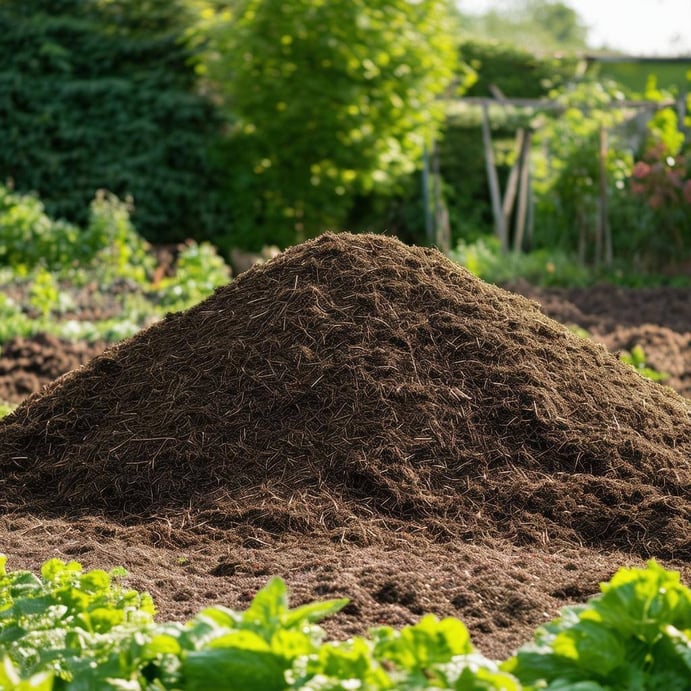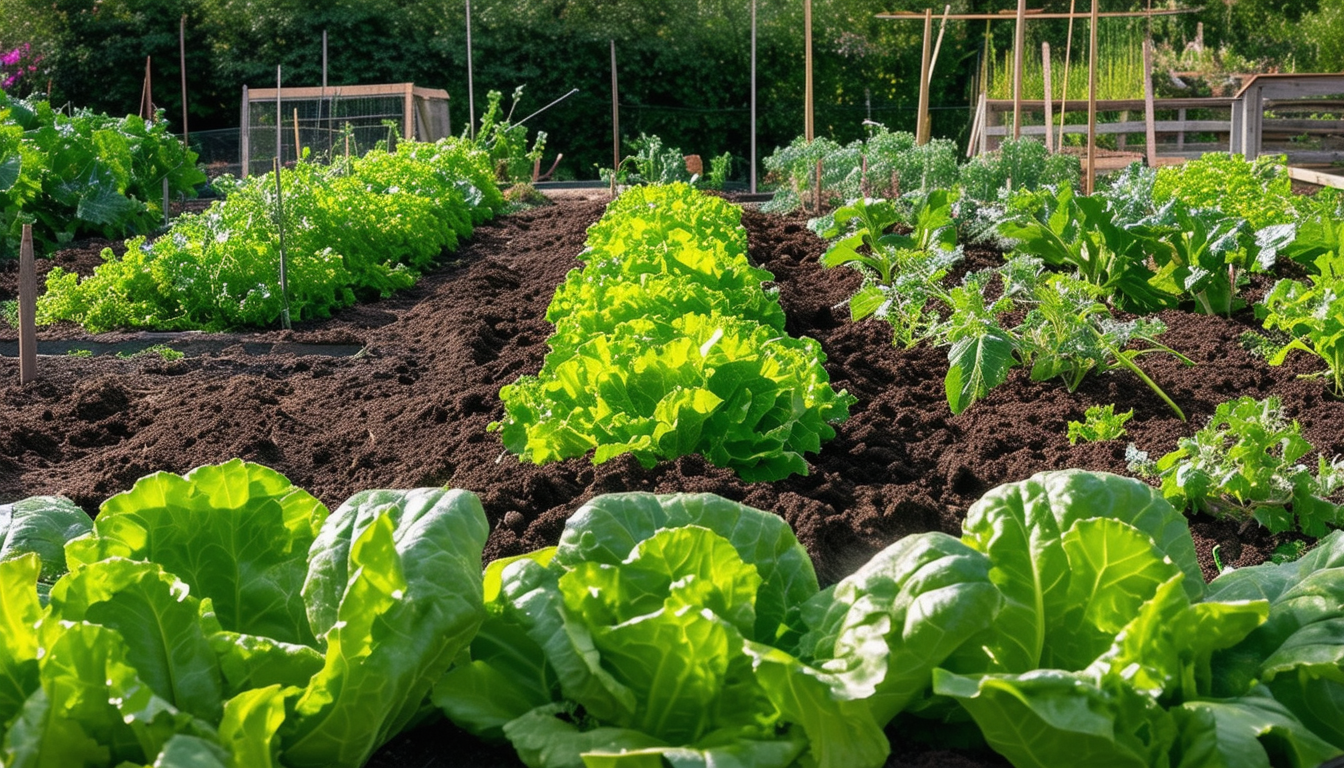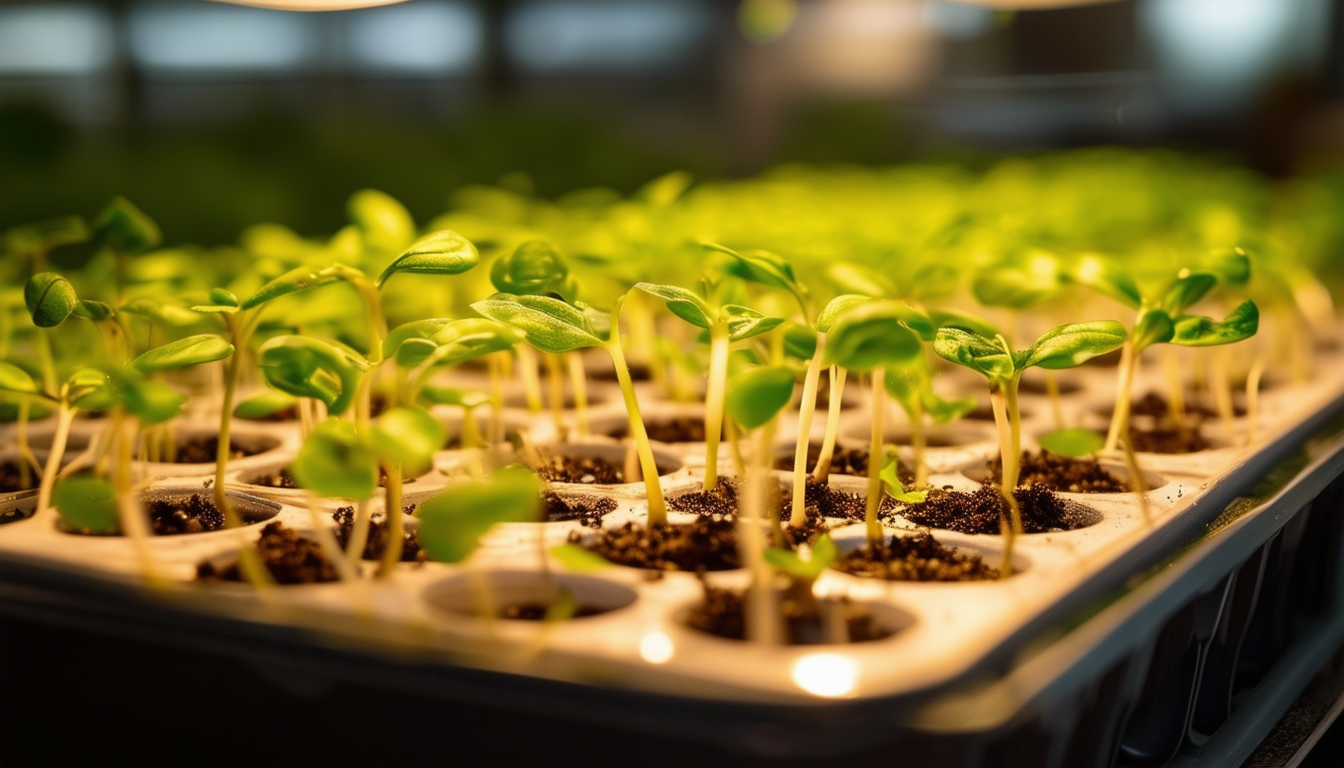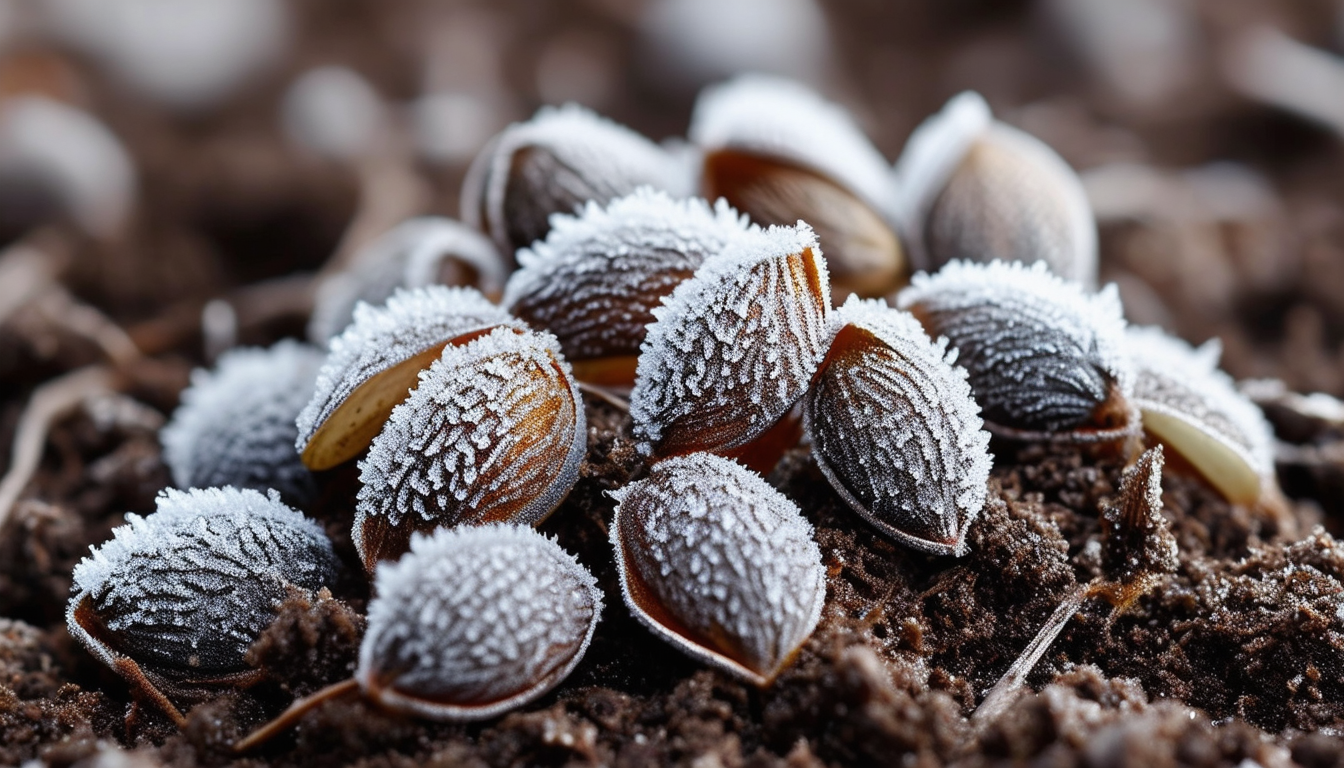
Unlock the secrets to lush, thriving gardens with organic soil amendments that boost plant health naturally.
Why Organic Soil Amendments Matter
Organic soil amendments play a crucial role in maintaining and improving soil health, which in turn supports robust plant growth. By adding organic matter to the soil, you can enhance its structure, water retention, and nutrient availability.
Unlike synthetic fertilizers, organic amendments release nutrients slowly, ensuring a steady supply of essential minerals and preventing nutrient leaching. This sustainable approach not only benefits your garden but also contributes to a healthier ecosystem.
Compost: The Garden Gold
Compost is often referred to as 'black gold' for its incredible ability to enrich soil. Made from decomposed organic matter such as kitchen scraps and yard waste, compost is packed with nutrients and beneficial microorganisms.
Adding compost to your soil improves its texture, promotes healthy root development, and boosts microbial activity. It's an all-around winner for any garden looking to achieve lush, vibrant growth.
Vermicompost: Earthworm Magic
Vermicomposting involves using earthworms to break down organic waste into a nutrient-rich soil amendment. The resulting vermicompost, or worm castings, is teeming with beneficial bacteria and fungi that enhance soil fertility.
Earthworm castings are highly concentrated in nutrients such as nitrogen, phosphorus, and potassium, making them an excellent supplement for your garden soil. Plus, the process of vermicomposting is a great way to recycle kitchen scraps and reduce waste.
Green Manure: Nature’s Fertilizer
Green manure refers to specific plants that are grown and then turned into the soil to improve its quality. Common green manure crops include clover, alfalfa, and rye. These plants add organic matter, improve soil structure, and increase nutrient content.
When green manure crops are tilled into the soil, they decompose and release essential nutrients, making them available to future crops. This practice also helps in suppressing weeds and preventing soil erosion.
Bone Meal and Blood Meal: Nutrient Powerhouses
Bone meal and blood meal are organic fertilizers derived from animal byproducts. Bone meal is made from ground animal bones and is rich in phosphorus and calcium, essential for strong root development and flowering.
Blood meal, on the other hand, is a high-nitrogen fertilizer made from dried animal blood. It promotes lush, green growth and is especially beneficial for leafy vegetables. Both of these meals release nutrients slowly, providing a steady supply over time.
Additional sources
Other organic soil amendments include aged manure, leaf mold, and composted bark. Each of these materials adds valuable organic matter and nutrients to the soil, enhancing its fertility and structure.
Experimenting with different organic amendments can help you find the perfect combination that meets the unique needs of your garden.
Where to source organic soil nutrients
You can source organic soil nutrients from local garden centers, nurseries, and even online retailers. Many communities also offer composting programs where you can obtain high-quality compost for free or at a low cost.
Additionally, consider starting your own compost pile or vermicomposting bin at home to create a sustainable and cost-effective supply of organic soil amendments.
FAQ
How can you naturally add nutrients to your soil? One effective method is to incorporate compost, which is rich in organic matter and beneficial microorganisms that enhance soil structure and fertility. Additionally, planting green manure crops, such as clover or rye, can significantly improve soil quality by adding organic matter and essential nutrients as they decompose. Organic fertilizers like bone meal and blood meal are also excellent choices; bone meal provides phosphorus and calcium, crucial for root development and flowering, while blood meal offers a high nitrogen content, promoting lush, green growth.
What are some natural methods of soil enrichment? Utilizing compost is a tried-and-true approach, as it not only enriches the soil with nutrients but also improves its texture and water retention capabilities. Vermicompost, produced through the breakdown of organic waste by earthworms, is another powerful amendment that introduces beneficial bacteria and fungi to the soil. Green manure crops, when tilled into the soil, release nutrients and improve soil structure. Mulching, which involves covering the soil with organic materials like straw or wood chips, helps retain moisture, suppress weeds, and gradually adds nutrients as it breaks down.
How can we increase nutrients in soil? Adding organic matter is key, and this can be achieved by incorporating compost, which is rich in nutrients and improves soil health. Aged manure is another excellent source of organic matter, providing a balanced supply of nutrients. Practicing crop rotation is also beneficial, as it helps prevent nutrient depletion and reduces pest and disease buildup, thereby maintaining soil fertility over time.
What's the best way to enrich soil? Regularly adding compost and other organic amendments is essential for maintaining soil fertility. Compost not only supplies nutrients but also enhances soil structure and microbial activity. Incorporating a variety of organic materials, such as vermicompost and green manure, ensures a diverse nutrient profile and supports healthy plant growth.
What is the fastest way to add nitrogen to soil? For a quick nitrogen boost, using blood meal is highly effective due to its high nitrogen content. Composted manure is another excellent option, as it provides a rapid release of nitrogen and other nutrients, promoting vigorous plant growth.
How do you fix nutrient deficiency in soil? First, conduct a soil test to identify specific nutrient deficiencies. Once identified, you can add targeted amendments to address these deficiencies. For instance, if your soil lacks phosphorus, bone meal is an excellent amendment to provide this essential nutrient. For nitrogen deficiencies, blood meal or composted manure can be used to quickly replenish nitrogen levels.
How can you help enrich the soil? Regularly adding organic matter is crucial for soil enrichment. This can be achieved through the application of compost, which improves soil structure and nutrient content. Practicing no-till gardening helps preserve soil structure and microbial life, while planting cover crops can prevent erosion and add organic matter when tilled into the soil.
How do you make soil enriched? To enrich soil, incorporate a variety of organic amendments, including compost, which provides a balanced supply of nutrients and improves soil health. Vermicompost, rich in beneficial microorganisms, enhances soil fertility, while green manure crops add organic matter and nutrients as they decompose.
What are the three natural methods of replenishing nutrients in the soil? Composting is a fundamental method, as it recycles organic waste into nutrient-rich soil amendments. Using green manure involves growing specific crops that are later tilled into the soil to improve its quality. Applying organic fertilizers, such as bone meal and blood meal, provides essential nutrients in a sustainable manner, supporting healthy plant growth.



